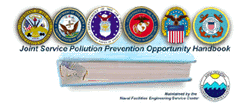| Overview: |
"Total
cost assessment (TCA)" is a method to eliminate unjustified and misleading
financial barriers in consideration of pollution prevention processes and
projects. The TCA methodís focus is on the "true" profitability of proposed
projects and differs from conventional financial analysis in four ways:
- Cost, savings,
and revenue summaries include indirect items like compliance, training,
testing, liability, and affect on product and corporate image, all typically
neglected from project analysis.
- Costs and savings
are directly allocated to specific process and product accounts rather
than to overhead accounts.
- Time horizons
for calculating returns on investment are extended to capture longer-term
benefits.
- Other profitability
measures include the time value of money for evaluating long-term costs
and savings.
Using the TCA method,
the Tellus Institute has completed several major studies including 1)
a study for the EPA Division of Pollution Prevention entitled, "Total
Cost Assessment: Accelerating Industrial Pollution Prevention through
Innovative Project Financial Analysis," and 2) a study for the New Jersey
Department of Environmental Protection and Energy entitled, "Alternative
Approaches to the Financial Evaluation of Industrial Pollution Prevention
Investments." Furthermore, Tellus has incorporated the TCA method into
its software, "P2/FINANCE."
P2/FINANCE is spreadsheet
software designed to guide companies in data collection and rigorous financial
evaluation of potential pollution prevention projects. As a starting point
or a complement to a companyís existing project evaluation procedure,
P2/FINANCE assures that pollution prevention projects have accurate financial
representation and receive due consideration when capital budgeting is
done. In addition, the program can compare the costs of current practices
to various alternatives based on a number of criteria: liability, cost,
debt, interest and tax rates, inflation, and depreciation.
The program is available
in either Microsoft Excel 5.0 or Lotus 1-2-3 for MS-DOS 3.1 (or higher)
formats, and comes complete with a Userís Manual and user support, if
desired. A mouse and color screen are optional, but they do simplify operation
of the program. For larger groups and organizations, one day training
on TCA and P2/FINANCE is available.
|
